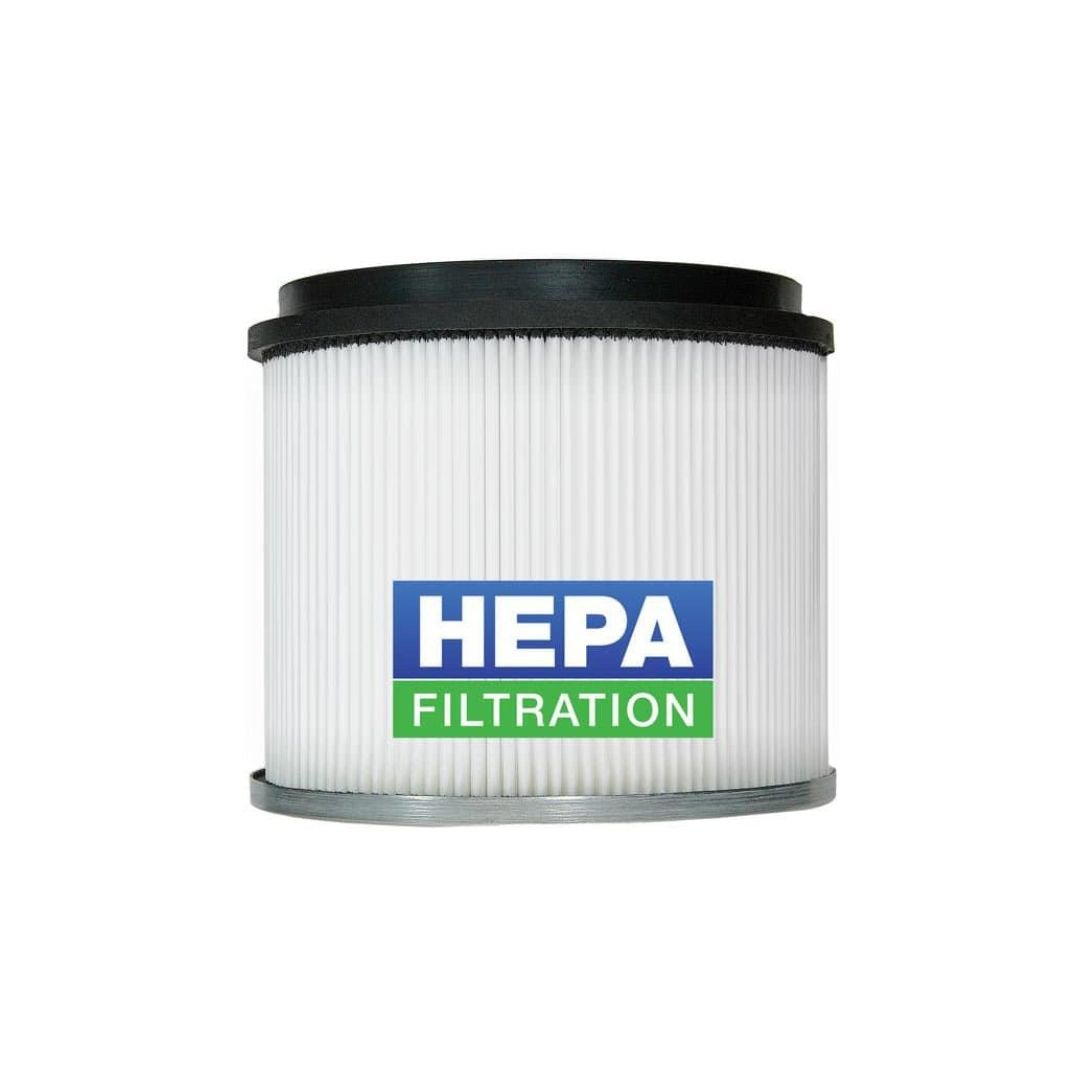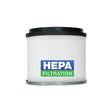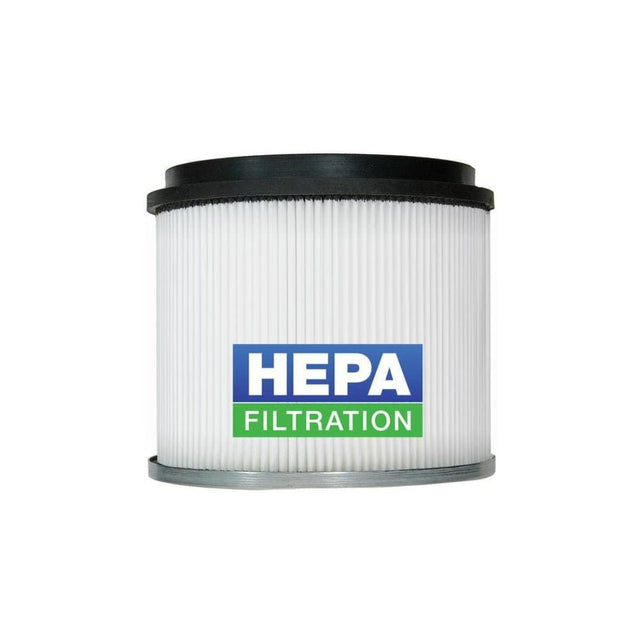HEPA stands for high-efficiency particulate air. A HEPA filter is a type of mechanical air filter; it works by forcing air through a fine mesh that traps harmful particles such as pollen, pet dander, dust mites, and tobacco smoke. There are a couple of different categories of HEPA filters that can make understanding the abilities of your filter confusing. The rating for a HEPA filter is based on capturing nearly all microns 0.3 in size, versus 0.1 or even 0.001 because 0.3 microns are the hardest size to trap and the optimal size for passing into the human respiratory system. Therefore, this micron efficiency rating sets the highest standard.
Surprisingly, HEPA filters become even more efficient the longer they are in use. For this reason, they are used in environments that rely on high clean-air standards, like surgical facilities, tuberculosis wards, NASA clean rooms, and laboratories. They are particularly useful for allergy sufferers. Over the decades filters have evolved to satisfy the higher and higher demands for air quality in various high technology industries, such as aerospace, pharmaceutical processing, hospitals, health care, nuclear fuels, nuclear power, and electronic microcircuitry (computer chips).
To make sure you are buying a True HEPA filter look for the serial number and test results printed on true or absolute filters. Make sure that the test results at .3 microns are 99.97 percent or above. The size of .3 microns is the testing standard, because most filters will perform better with both smaller and larger particles. Double-check the test results at .3 microns to make sure your filter is a true or absolute HEPA.
Payment & Security
Payment methods
Your payment information is processed securely. We do not store credit card details nor have access to your credit card information.





